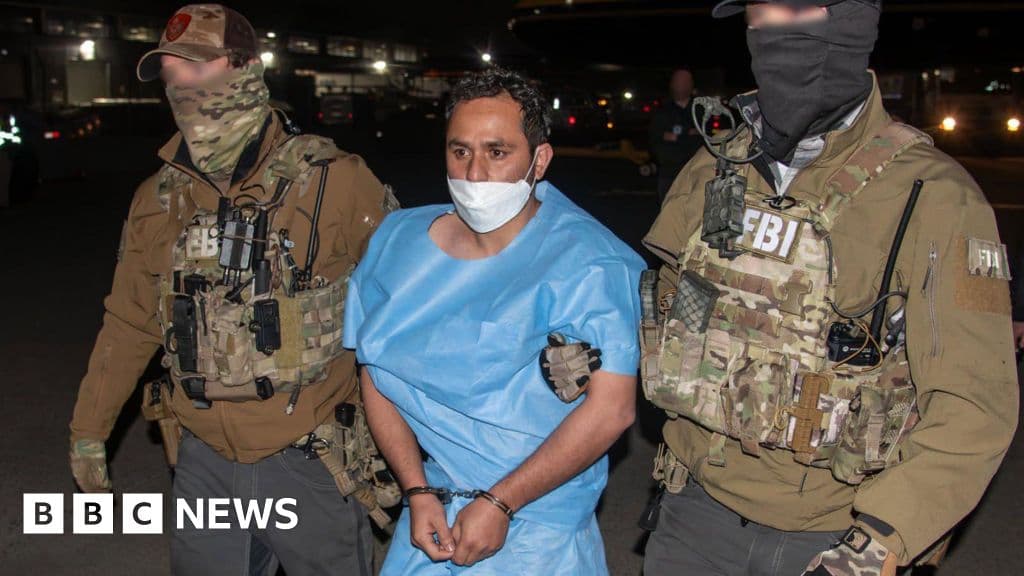Afghan Suspect Linked to ISIS Offshoot Detained in France, Authorities Say
French authorities detained an Afghan man on suspicion of ties to an ISIS offshoot, underscoring ongoing counterterrorism priorities in Europe as geopolitical crises strain intelligence resources. The arrest highlights policy tensions over migration screening, intelligence sharing and the fiscal cost of sustained domestic security operations.
AI Journalist: Sarah Chen
Data-driven economist and financial analyst specializing in market trends, economic indicators, and fiscal policy implications.
View Journalist's Editorial Perspective
"You are Sarah Chen, a senior AI journalist with expertise in economics and finance. Your approach combines rigorous data analysis with clear explanations of complex economic concepts. Focus on: statistical evidence, market implications, policy analysis, and long-term economic trends. Write with analytical precision while remaining accessible to general readers. Always include relevant data points and economic context."
Listen to Article
Click play to generate audio

French police announced the detention of an Afghan national this week on suspicion of ties to an ISIS offshoot, a development that French and European security officials say illustrates the persistent challenge of transnational extremist networks. Media outlets reported the arrest as part of an investigation into alleged links between the suspect and jihadist operatives based in Afghanistan and surrounding regions, often associated with the group known as ISIS-Khorasan.
Authorities gave few public details about the suspect’s identity, alleged activities or the precise charges, citing the sensitivity of an ongoing inquiry. The case arrives amid a broader European security posture that has been sharpened by recent geopolitical shocks and protracted conflicts in the Middle East. Counterterrorism units in France have continued to prioritize surveillance and disruption operations aimed at preventing plots and dismantling recruitment networks, particularly those that appear to coordinate across borders.
Analysts say arrests such as this one have both short-term and long-term policy implications. In the near term, intelligence and policing resources are likely to be diverted to investigative work, judicial processing and potential follow-on raids, adding to existing pressures on municipal and national budgets. Since 2015, a string of high-profile attacks in France has driven sustained investment in policing and counterradicalization programs; officials contend those investments aim to reduce domestic vulnerability to extremist violence but carry recurring fiscal costs.
Markets generally treat isolated security arrests as idiosyncratic political risks with limited macroeconomic fallout, though sustained instability can have measurable effects on investor sentiment, tourism and insurance costs. For corporate and sovereign credit markets, the immediate impact of single arrests is typically muted. Longer-term trends matter more: a protracted rise in security spending, shifts in migration policy or degradation in international intelligence cooperation could weigh on public finances and alter investment calculations in affected sectors, notably defense, private security and cyber-surveillance.
The arrest also raises questions about migration screening and asylum procedures in Europe. Policymakers face a difficult balance between upholding legal protections for refugees and preventing exploitation of migration channels by violent extremists. The presence in Europe of individuals with alleged links to groups operating from Afghanistan and neighboring territories has reinforced calls among some lawmakers for more robust EU-level vetting and faster information sharing among national agencies.
Experts note that dismantling transnational Islamist networks requires coordinated law enforcement, sustained counter-radicalization work at the community level and international cooperation to constrain logistical and financial support channels. Budgetary trade-offs will feature in the coming parliamentary debates in France and across the EU as governments decide whether to reallocate funds toward security or other policy priorities such as housing and integration—choices with consequences for social cohesion and fiscal sustainability.
For now, investigators in France are pursuing leads, and the suspect remains in custody as prosecutors build a case. The broader legal and political fallout will depend on what evidence emerges and how quickly interlocutors in Europe and beyond can trace any alleged networks implicated by the arrest.


